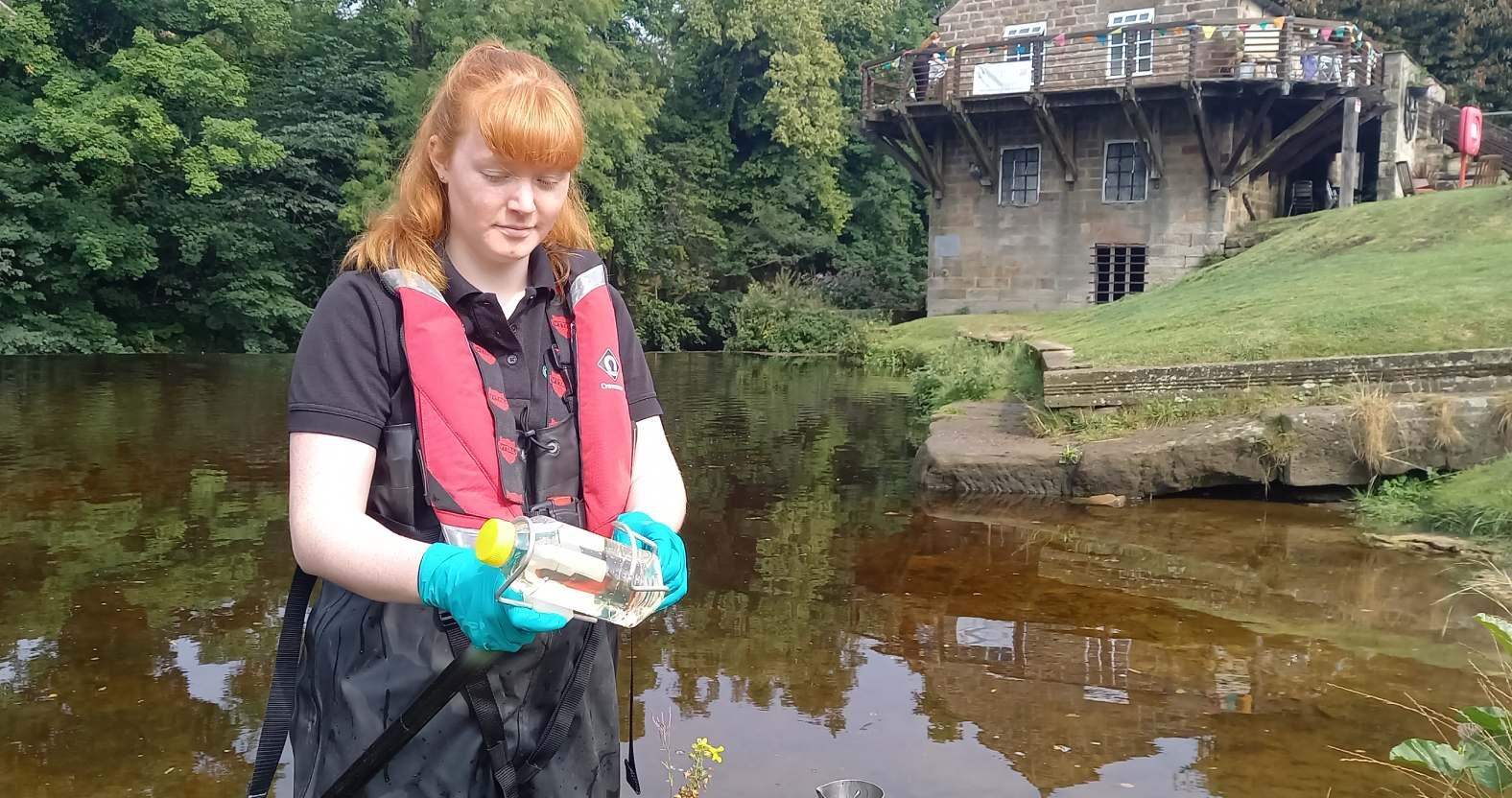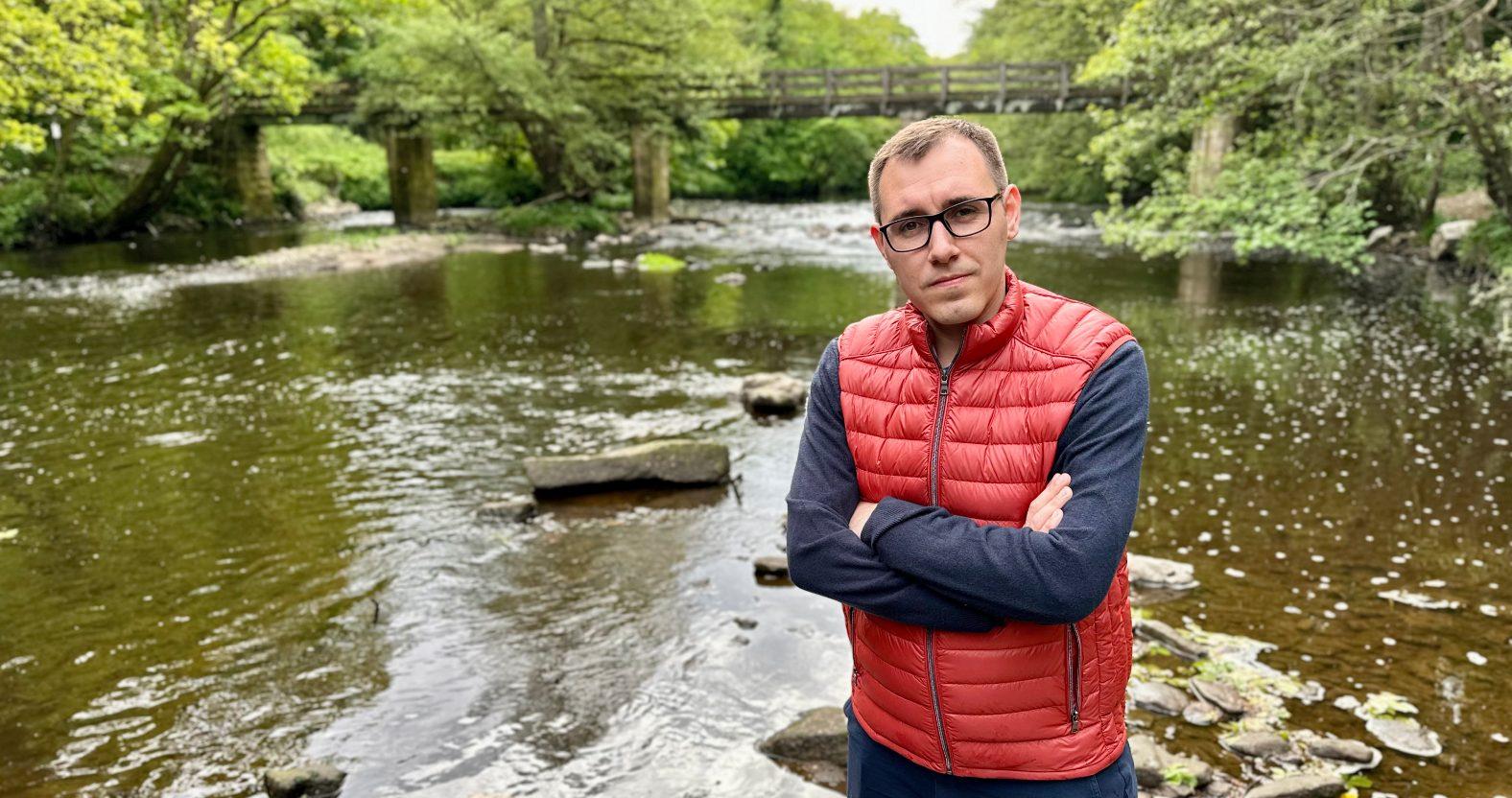Subscribe to trusted local news
In a time of both misinformation and too much information, quality journalism is more crucial than ever. By subscribing, you can help us get the story right.
- Subscription costs less than £1 a week with an annual plan.
Already a subscriber? Log in here.
30
Dec 2024
3: Pollution is being addressed, but the Nidd still faces a murky outlook in 2025

In this article, which is part of a series of the 12 most significant stories that helped shape 2024 in the Harrogate district, we take a look at how the River Nidd hit the headlines for the wrong reasons, and what its prospects are for 2025.
Of all the stories we’ve run this year, the ongoing saga of the foul state of the River Nidd must surely be one of the most shocking.
The tale began with a group of anglers getting together to campaign for improved water quality after it became clear that farm run-off and raw sewage were making it not just unpleasant, but downright dangerous. That was back in October 2022.
Since then, much work has been done to identify the extent of the pollution, while numerous cases have been recorded of swimmers falling ill.
In February, a report from the Angling Trust found the Nidd was one of the most polluted rivers in the UK.

Left: healthy willow weed growing in a Yorkshire river Right: the same species killed off by pollution in Oak Beck, a tributary of the Nidd.
While the negative impact of slurry and other animal waste being sluiced into our waterways is proven to be considerable, the most emotive source of pollution is human waste.
Because rainwater drains and foulwater drains share a pipework – they join up underground – when heavy rain overloads the system, the results can be pretty grim. At times like these, the water companies are legally permitted to discharge raw, untreated sewage – poo, paper, wet-wipes and all – directly into the rivers.
Much of this gets carried away and breaks down on its way to the sea, but there can be lasting side effects.
Just this month, it was revealed that samples taken from the Nidd this summer contained a cocktail of drug residues and chemicals, some of which may never disappear.

Steph Ricketts, environmental monitoring officer with the Environment Agency, holding a water sample collected at Knaresborough Lido during the summer.
So are things getting better or worse? And just what has been achieved over the last 12 months?
Campaigners, including the then MP for Harrogate and Knaresborough Andrew Jones, claimed a victory in May when Knaresborough Lido – a popular swimming spot – was awarded bathing water status.
Although that may sound like a seal of approval, it actually meant that the Environment Agency was obliged to take steps to improve water quality at the Lido.
Over the summer, the Stray Ferret joined scientists from the Environment Agency as they tested water at the Lido for the faecal indicator organisms and can cause severe stomach upsets: E. coli and intestinal enterococci (IE).
The agency took 20 samples throughout the summer and of these, 14 gave readings above 900 colony-forming units (CFUs) of coliform bacteria per 100 millilitres of water, which is the level deemed to be safe. One, taken a couple of weeks before our visit, registered over 9,000 CFUs – more than 10 times the safe limit.

Over the summer, the Environment Agency found E.coli at Knaresborough Lido to be 10 times the safe limit.
Little wonder, then, that the Environment Agency ended up rating the water ‘poor’, and now says that ‘bathing is not advised’ there.
It seems the situation has reached rockbottom, but famously, the only way from there is up, and the agency is legally required to develop plans to improve the water at sites rated ‘poor’. Its press release announcing the bathing water results said it was working with local partners “to take targeted action” although what that entails has not yet been made clear.
Yorkshire Water, which has been very much in the firing line due to unsanctioned sewage discharges and a sluggish approach to network improvements, has set out its business plan for 2025-30, but this is currently awaiting a ‘final settlement’ decision by water regulator Ofwat.
Meanwhile, Tom Gordon, Mr Jones' successor as MP for Harrogate and Knaresborough, has called for a complete overhaul of the water industry, including scrapping Ofwat and replacing it with a new regulator with the power to clamp down on polluting water companies such as Yorkshire Water.

MP Tom Gordon standing by the River Nidd
The chair of the Nidd Action Group, David Clayden, told the Stray Ferret earlier this year that he did not expect the situation to improve ‘for several years’ but the parlous state of the waters of the Nidd has at least been recognised, investigated, measured, and will continue to be monitored over the coming bathing seasons.
But he warned last month:
Nidd Action Group supports attempts to strengthen regulation in a systemic way, but high-sounding aims don't get the job done without political conviction and resources to tackle the problems that we know are there.
We intend to critically review the actions taken by major stakeholders over the next few years that affect the Nidd, and call-out any slow or ineffective interventions. We will work with others to improve our knowledge of how, what and where pollution gets into our rivers, and what steps we can all take to improve the rivers and becks.
The state of the Nidd, it seems, is likely to feature prominently on the news agenda in 2025 and beyond.
0